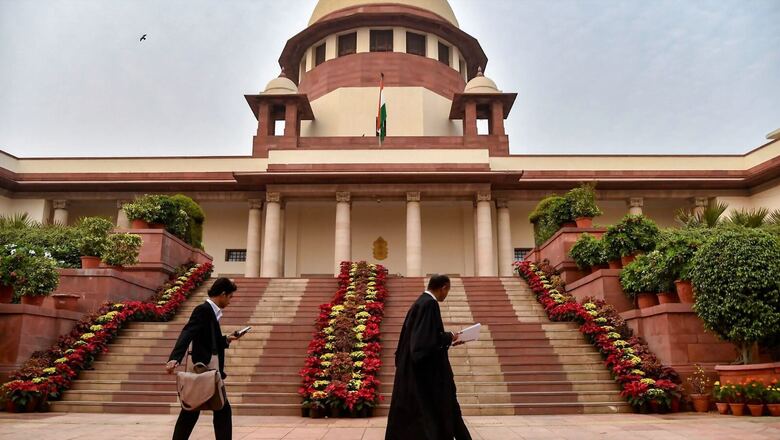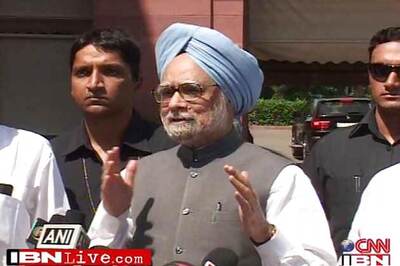
views
The Central government on Monday sought more time from the Supreme Court to take appropriate steps for reconsidering sedition law. The apex court, which was the hearing the pleas challenging the sedition law, fixed the matter for further hearing in January 2023.
Hearing the pleas today, Chief Justice of India Uday Umesh Lalit-led apex court bench extended the interim order granting protection and putting the law in abeyance.
Earlier this year, the Supreme Court has directed that all proceedings on charges under section 124 A of the Indian Penal Code be kept in abeyance until the government completes the re-examination of the sedition law.
Section 124A says that “whoever, by words, either spoken or written, or by signs, or by visible representation, or otherwise, brings or attempts to bring into hatred or contempt, or excites or attempts to excite disaffection towards, the Government established by law shall be punished with imprisonment for life, to which fine may be added…”
In a historic order on May 11, 2022, putting on hold the colonial-era law, the Supreme Court said that till the exercise of re-examination is complete, no case will be registered under IPC Section 124A and added that those already charged under it can approach courts for bail.
Of the 399 cases of sedition (Section 124A of the Indian Penal Code) were registered in India between 2014 and 2020, convictions were granted in eight, Union Home Ministry data showed. Further, charge sheets have been filed in only 40% of these cases (163), data analysed by CNN-News18 showed.
The data presented in the Lok Sabha shows that of the 399 cases, 36 were reported from the Union Territories of Delhi and Jammu and Kashmir, while the remaining were from the states. The cases registered across the country annually under the law have jumped by over 55% – from 47 in 2014 to 73 in 2020. In 2019, 93 cases were registered – highest during the period. Between 2015 and 2019, the annual cases were rising consistently.
In the pre-Independence era, the sedition law was used to stifle political dissent with cases lodged against Bal Gangadhar Tilak, Annie Besant, Maulana Azad, Mahatma Gandhi and many others. The legacy of this law in India comes from England. But citing its chilling effect on freedom of speech and expression, it was repealed by the United Kingdom in 2009. The Constituent Assembly debated including sedition as a restriction to the fundamental right to freedom of speech. However, due to disagreement among members, it could not be done.
After Independence, a five-judge Constitution Bench in 1962 upheld the constitutional validity of 124 A. However, the court also held that unless accompanied by incitement or call for violence, criticism of the government cannot be labelled sedition. As per guidelines issued by the constitutional bench, not all speech with disaffection, hatred or contempt against the states but only one that is likely to incite public disorder would qualify as sedition.
Read all the Latest India News here



















Comments
0 comment